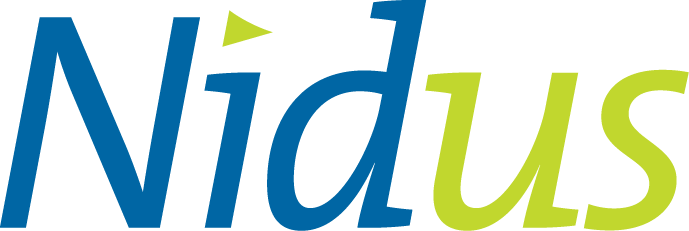Supported Decision-Making
PDF Version Coming SoonSupported Decision-Making
Jump to: Overview • Forms • Examples • FAQs • Related Information
Jump to: Overview • Forms
Examples • FAQs • Related Info
Legally reviewed. Last update made in June 2023.
What is Supported Decision-Making?
Supported decision making is a process of supporting and celebrating the individual’s capability and identity — their personhood. The Representation Agreement Act was created to provide an alternative to adult guardianship. Under adult guardianship procedures, if an individual is declared incapable, they are legally a non-person. The Representation Agreement Act was created from a philosophy that views people as capable even if they cannot manage their own affairs or give informed consent. A representative(s) is always listening to the individual’s communication (all forms of communication are recognized) to enable them to participate in decision making.
At Nidus, we also refer to this as interdependent decision-making. The concept of interdependent decision making comes from the real life experience of personal supporters who naturally seek out and advocate for the wishes and values of the adult to ensure the adult’s voice is at the centre of any decisions during times when the adult needs help speaking up and advocating for themselves. A representative helps the adult participate in decision-making. They may use pictures, demonstrations or other methods.
A representative not only preserves an individual’s self-determination, they strive to enhance it. A representative does not take the place of the individual, they act as a bridge to help third parties get to know and interact with the individual, which in turn provides opportunity for the individual to demonstrate and develop new capacities.
How is Supported Decision-Making related to Self-Determination?
Individuals from marginalized communities have both historically and in modern times, been denied their right to self-determination. Self-determination is about having the right and freedom to make choices and decisions about your own life, and to have the responsibility to experience the consequences of these decisions.
Supporters and allies can help promote self-determination by providing individuals with independence, interdependent support, or substitute decision-making on an as-needed basis, while recognizing and understanding the importance of all individuals to participate meaningfully in their own lives and in their communities.
Nidus is the expert on Representation Agreements, a legal model for supported decision making. The Representation Agreement Act inspired Article 12 of the United Nations Convention on the Rights of Persons with Disabilities (2008) which calls on governments to implement legislation that ensures all adults receive support with decision making without the need to take away or restrict their rights. The Convention has been ratified by Canada.
Is Supported Decision-Making the same as Substitute Decision Making?
No. Supported decision making is different from substitute decision making. Substitute decision making is when someone takes the place of an individual who is determined incapable of managing their affairs or making decisions. The substitute decision maker acts on behalf of and in the best interests of the individual.
In the past, systems, laws and policies only recognized substitute decision making. If an adult was considered cognitively incapable (and this included adults who did not communicate in traditional or expected ways), then the adult’s personal supporters might be consulted, but only to act on the adult’s behalf and only for what was determined to be in the adult’s best interest. Representation Agreements recognize a dynamic continuum of decision-making. Decisions are made independently. When needing help, most decisions are made interdependently, and in some situations substitute decisions are made on behalf of the adult (for example, when adult is unconscious, in a coma or delirious).
Substitute decision-making is the approach reflected in Power of Attorney legislation and health care proxy decision making.

RA (and related) Forms
Nidus provides both RA7 and RA9 forms.
- See RA Forms
- See Related Forms: Confirmation of Substitution Form; Resigning as a Representative or Alternate; Resigning as a Monitor; Revoking RA
Register
Securely register a copy of your RA with the Nidus Registry, a BC-based centralized digital repository with 24/7 access. Ensure you are prepared for a health crisis or other emergency.

Under Construction
Coming Soon
Supported Decision-Making FAQs
Coming Soon
Coming Soon
RELATED INFORMATION
Personal Planning
Representation Agreements
Section 7 Representation Agreement
Section 9 Representation Agreement
Enduring Power of Attorney
Advance Directives
SIGN UP FOR NEWSLETTER
Stay updated on the latest developments, resources, and more.
© 2025 Nidus Personal Planning Resource Centre. All rights reserved.

